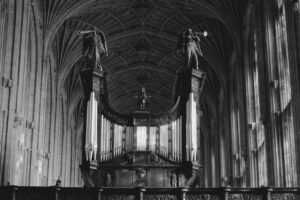“You believe because you can see me. Blessed are those who have not seen and yet believe.” – John 20:29
In his thoughtful reflection on the Faith, Introduction to Christianity, Cardinal Joseph Ratzinger (Pope Benedict XVI) recalls a story told by the great Jewish philosopher Martin Buber regarding a certain “learned man and adherent of the Enlightenment” and a Rabbi. The scholar went to the Rabbi with the intention of shattering his old-fashioned proofs for the truth of his faith. When he entered the Rabbi’s room, he found him pacing back and forth, with a book in his hand, consumed in thought. The rabbi had not even seemed to notice his visitor. Then suddenly he stopped, looked at him, and said, “But perhaps it is true after all.”
Of course, this “perhaps” is necessarily accompanied by a “perhaps not.” And this sparks a question: is doubt the enemy of faith or a necessary component of it? Well, that depends upon the kind of doubt you mean. There are three kinds of doubt: methodological doubt, skeptical doubt, and existential doubt.
Methodological doubt is doubt in matters of empirical inquiry or logical deduction. It is doubt about facts or conclusions. This kind of doubt is fixated on attaining absolute certainty and thus engenders positivistic thinking – a materialistic worldview that states if something cannot be empirically verified, then it isn’t true. This likely was the doubt of the “adherent of the Enlightenment” in the story. He was a rationalist.
Skeptical doubt is a particular attitude towards others and towards reality. It will not believe others or their claims because they can deceive or be deceived. One can also detect in the skeptic a certain lack of backbone under the guise of intellectual superiority. Perhaps the real motivation of the skeptic is that he or she is unwilling to land anywhere, for that would mean standing for something.
Neither methodological doubt nor skeptical doubt are compatible with faith. I think the Apostle Thomas was guilty of both. He needed to “see” – to have empirical proof, absolute certainty: “Unless I see in his hands the print of the nails, and place my finger in the mark of the nails, and place my hand in his side, I will not believe” (John 20:25). And yet, he also seems to have had an attitude of skepticism. Upon the death of Lazarus, when Jesus says, “let us go to him,” Thomas cynically retorts, “Let us also go that we may die with him.” Thomas fears that the Jewish leaders will kill Jesus (and them) if Jesus returns to Bethany. This exposes his doubt in both Jesus’ true mission and promise of eternal life. It also reveals his skepticism about Jesus’ implied plan to raise Lazarus from the dead (see John 11:4, 15). These two types of “doubt” are not really doubt at all. They are better described as “disbelief.”
Yet, along with methodological doubt and skeptical doubt, there is existential doubt. Existential doubt is the “perhaps not” mentioned above. And it is in the face of this kind of doubt, this “unknowing within knowing,” that one must take a stand. Faith means taking a stand. It means saying, “This is where I stand.” It is our will saying, “Amen” (“It is so”), while our intellect, seeking absolute certainty as it does, remains dissatisfied. Faith makes us certain. It “gives substance to our hopes” and “convinces us of things we cannot see” (Heb. 11:1). And when you choose where you stand, where you stand gives you your perspective. You “look” from that position. And you live from that position. The definition of theology as “faith seeking understanding” assumes this decision to take a stand. As Cardinal Ratzinger states, “understanding only reveals itself in standing, not apart from it.” St. Thomas Aquinas puts it this way: faith “cleaves firmly to one side” (Summa Theologiae, Secunda Secundae, Ques. 2, Art. 1).
One of lures of agnosticism – of saying “I do not know if God exists or, if He does, whether this or that religion is the true one” – is that you never have to take a stand or pick a side. For most, agnosticism is a lazy position and lacks sincerity. It feigns intellectual humility, while masking the deeper truth that we want to “have our cake and eat it too.” We cannot necessarily deny God’s existence, nor do we want to for the existential void that would bring. Yet, we do not want to take a stand – not for fear of being wrong, but because of the moral demands it would place on our lives. It is a cowardly position to take. Faith takes courage.
So, existential doubt, a certain “unknowing,” is part and parcel of faith. I believe this can be illumined by recalling that faith is related to the personal as a constitutive element of any relationship. It is the unknown in relationships that give them their real value. When I married my wife, did I know her? I would have said that I did. I believe I did. I certainly believed I had enough knowledge of Shannon to commit my life to her. But the choice to say “I do” was an act of faith. I hadn’t solved the equation. I mean, there was more that I didn’t know about Shannon than I actually knew about her. This is because the human person is a mystery. We are even mysteries to ourselves. Shannon and I would both say that we have come to know ourselves as much as we have come to know one another in the past quarter century plus. Could you imagine how empty our choice, our election of one another would have been if we had absolute certainty? One could say that the “personal” would be eliminated from personal relationships. Then, we would not be choosing a person, but a list of qualities. Love wouldn’t be a mystery, but a calculus. “Blessed are those who have not seen and yet believe” (John 20:29).
Of course, there is some “knowing” – we stand where we stand because of this or that. Since faith “cleaves firmly to one side,” St. Thomas continues, “belief has something in common with science and understanding.” Faith “does not attain the perfection of clear sight,” but we are “induced to believe” for reasons (St. Thomas mentions, as one example, that such beliefs have been confirmed by miracles). Faith, properly understood, is “thinking with assent.” Thus, I would resist the popular description of faith as being a blind leap. I prefer to call faith “a choice to step into the dark.” We know things that inform (or experience things that inspire) our choice to believe, but faith is only faith because of the “unknowing.” Without “doubt,” there is no faith. The light of faith assumes the darkness into which it shines.
Yet, on some level, we are all afraid of the dark. This is why the choice to step into it, takes courage. Again, faith takes courage. Love (which faith makes possible) takes courage. Life takes courage.
May the Easter greeting, “He is risen indeed!” give us this courage!
Perhaps, it is true after all.
David C. Hajduk, Ph.D. has over thirty years of experience in religious education and pastoral ministry, including youth, family life, and pro-life ministries. He has been a high school Theology teacher since 1993 and an Adjunct Professor of Moral Theology since 2008. David did his doctoral work on the thought of St. John Paul II. In 2019, he became the Director of Theology for Array of Hope. David is responsible for reviewing and creating program content, writing blogs, giving talks, and co-producing Array of Hope’s Reason for Hope podcast. David is an acclaimed and versatile speaker, specializing in topics related to God’s plan for life and love. His book, God’s Plan for You: Life, Love, Marriage & Sex (Pauline Books & Media, 2006, 2018), a book for teens on St. John Paul II’s Theology of the Body, received the Catholic Press Association of the United States & Canada Book Award in 2007. David is also a member of the Angelic Warfare Confraternity, a supernatural fellowship of men and women dedicated to pursuing and promoting chastity under the powerful patronage of St. Thomas Aquinas and the Blessed Virgin Mary. David and his wife, Shannon, have 11 children and homeschool.




